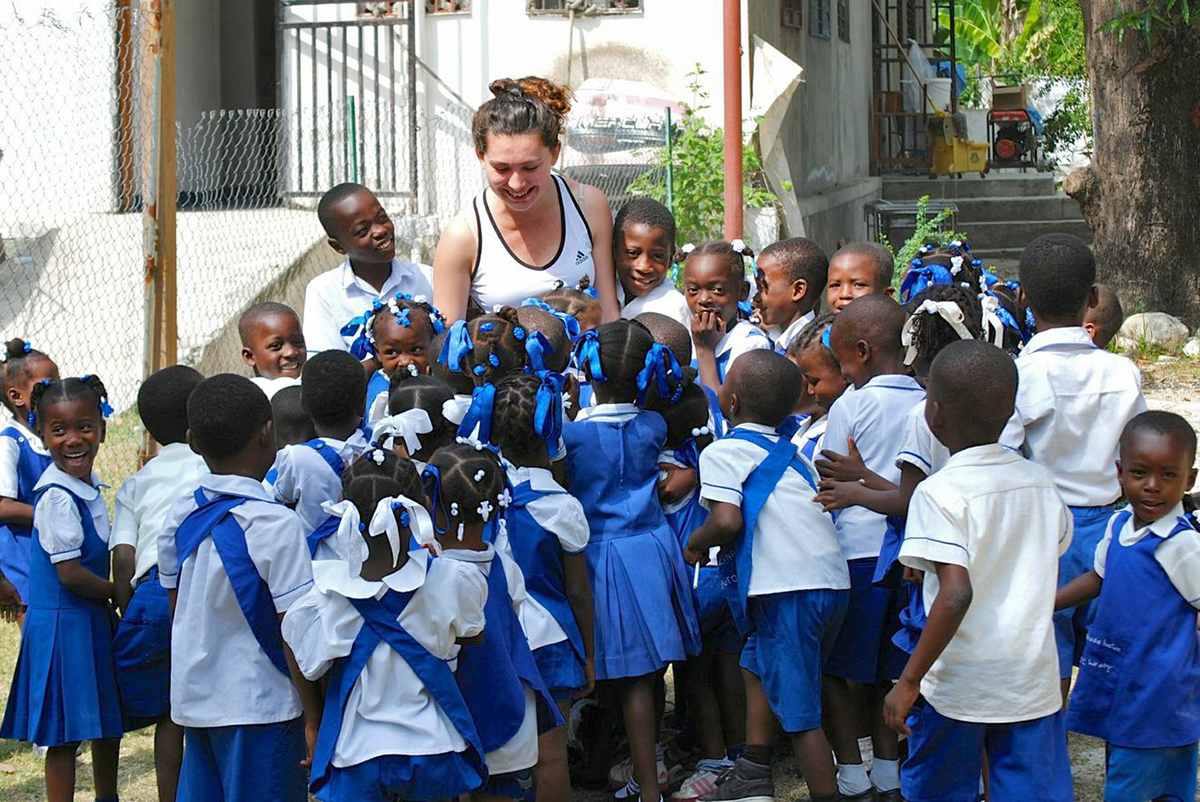UCLA students visit Haiti, assist local health center

Lyolya Hovhannisyan, a fourth-year neuroscience student, travelled to the town of Petit-Goâve in Haiti with two other UCLA students to help improve diabetes education and treatment. The students said they could still see effects of the earthquake that struck the country four years ago.
Courtesy of Mary Cutler
By Trevor Cleere
April 4, 2014 1:13 a.m.
The original caption accompanying this article contained an error and has been changed. See the bottom of the article for additional information.
As their plane angled down to start its descent into Port-au-Prince, Haiti, three UCLA students saw the rusted tin roofs and dirt streets of a city that was still struggling to recover from the 7.0 earthquake that struck the island four years ago.
In February, the UCLA Blum Center on Poverty and Health in Latin America announced a partnership with the Dr. Henri Gerard Desgranges Foundation inPetit-Gôave, Haiti. The foundation is currently sponsoring an initiative to assess the situation in the community and formulate a plan to improve diabetes treatment and the quality of health care.
As part of the partnership, UCLA sent three students to Petit Goave, to introduce more comprehensive testing and treatment and help the community better understand and manage disease.
Dr. David Cutler, who led the UCLA delegation, has been going on missions to Haiti since the 2010 earthquake. The country, which is the poorest in the Western Hemisphere according to World Bank, is still recovering from the devastation. Four years after the earthquake, there’s still not enough funding available to fix the damage done to the nation’s infrastructure, Cutler said.
Each year, Cutler helps the foundation research a medical problem in the community. This year the initiative’s focus is diabetes.
“Our goal is to conduct research on the root cause of poverty and its effects on healthcare in Haiti,” Cutler said. “We want to provide education for both the local staff and UCLA students, to lay foundations for better health care in the community.”
The scholarship program from the Blum Center sponsored three students to create individual projects and conduct research by surveying 370 residents of the town of Petit-Gôave about how much they knew of their medical conditions and treatment options.
Lyolya Hovhannisyan, a fourth-year neuroscience student from the initiative, said the survey results showed people were aware of their diabetes, yet did not understand how to manage or prevent it.
“More education and outreach are needed in this community,” Hovhannisyan said. “Awareness can lead to prevention and better management of conditions.”
Many of the participants needed help filling out the survey because they had trouble reading, she said.
Fewer opportunities for employment and advancement are available for individuals in Haiti because of a lack of resources for education, said Erik Peña, a graduate student in Latin American studies who worked on the survey.
Repeated missions to Haiti over the last few years have shown that the shortage of resources is largely responsible for the poor health care in the country, Cutler said.
Rebecca Barber, a fourth-year neuroscience student, was not prepared for the condition of the local hospital in Petit-Gôave. On a tour of the ward where the sickest patients were held, she immediately noticed the overcrowded conditions.
“I could feel the illness in the air,” Barber said. “The patients seemed miserable, and I know that I couldn’t heal in that kind of environment.”
The goal of the Dr. Henri Gerard Desgranges Foundation is not merely to come and eventually provide health care, but to show the community how to manage it and be independent, Cutler said.
A part of the program involved establishing support groups for the diabetic members of the community to create an open environment for them to talk about how the disease affects their lives, Hovhannisyan said.
Correction: In the photo accompanying this story, fourth-year neuroscience student Lyolya Hovhannisyan is pictured.


